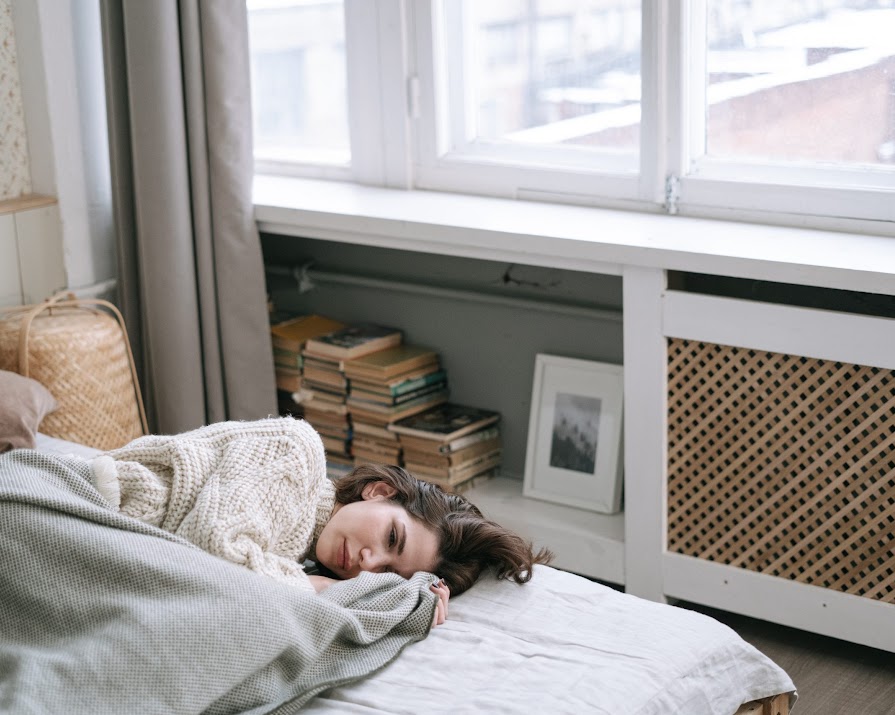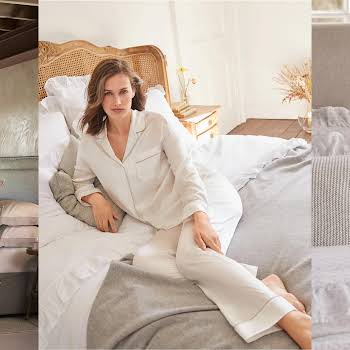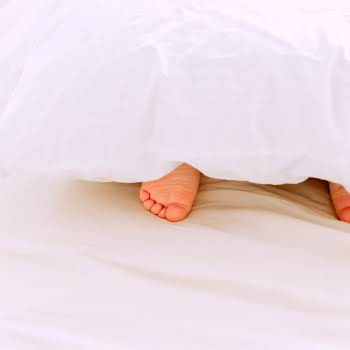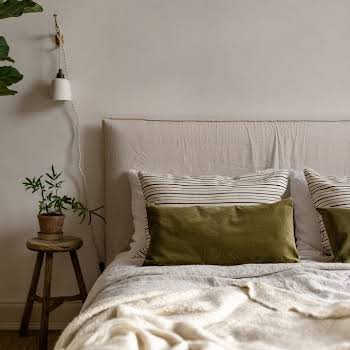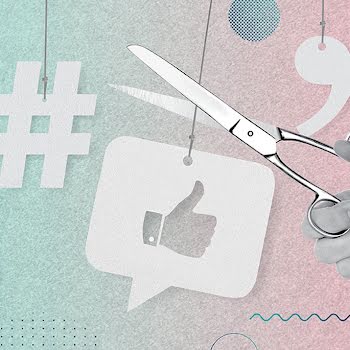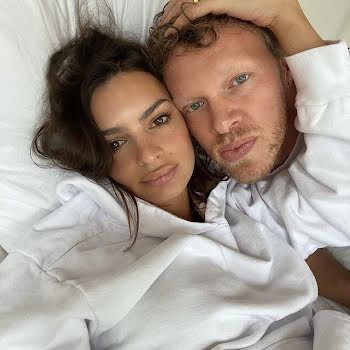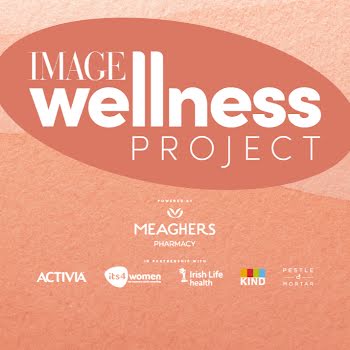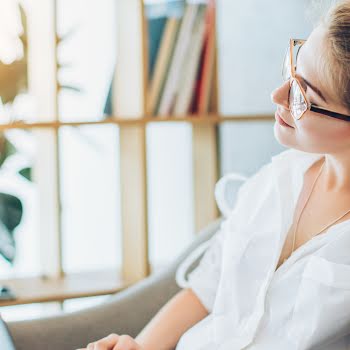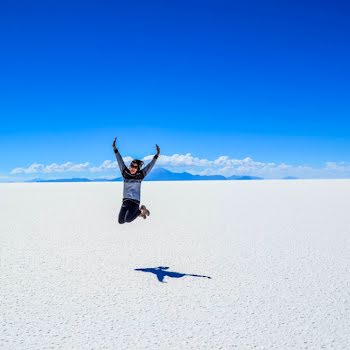‘I wake up exhausted’: how to get a good night’s sleep, according to an Irish sleep expert
By Grace McGettigan
21st Apr 2024
21st Apr 2024
IMAGE talks to sleep consultant Tom Coleman on the importance of getting a good night's sleep (as well as how to achieve it)
It doesn’t matter what time I go to bed or when I get up. Every morning, I wake up feeling exhausted. And I’m not the only one. According to research by Laya Healthcare, a whopping 80% of Irish workers feel sleep-deprived on a daily basis. Not only does this impact our energy levels and ability to carry out tasks throughout the day, but it also negatively impacts our mood.
Having tried lavender-scented candles to no avail, I decided to turn to an expert for help; namely Tom Coleman, sleep consultant and founder of My Nutrition Ireland. Here he explains the importance of getting a good night’s sleep (and more importantly, how to achieve it).
Why is sleep so important?
“Sleep is hugely important for all aspects of physical, mental and emotional health,” says Tom. “It plays a vital role in tissue repair, hormone balance, fertility, immunity, brain health, mood and general well-being. Nearly all cellular repair is carried out when we sleep, and our brain flushes itself out during the latter phases of sleep.
“Waking up following limited or poor sleep leaves us groggy, with low energy, as well as looking and feeling older,” he adds. “Sleep is so often overlooked or neglected, but it is deeply restorative for every aspect of our body, right down to every cell.”
How much sleep should we really be getting every night?
“For most of us, we require seven and a half to eight hours per night,” says Tom. “The reason for this is we sleep in 90-minute blocks or ‘cycles’. Five 90-minute blocks is about 7.5 hours.” Tom also adds that it’s perfectly normal to wake up occasionally during the night, “as we modulate through light-to-deep phases of sleep.”
Does he have any advice for people who feel exhausted all of the time (even after a long night’s sleep)?
“Quality and quantity of sleep are very important. If people feel exhausted even after a long sleep, this may be indicative of an underlying issue,” says Tom.
“Sleep is one of the three pillars of health; physical activity and nutrition being the other two. So, if we still feel very tired, this might tell us that we need to look at other areas of our health. Low energy, lethargy and exhaustion could be anything from sleep apnoea to an underactive thyroid.
“The first step is to ascertain why we feel tired. Are you drinking far too much coffee? Looking at a screen at night when you should be resting your brain?” Tom says it’s important to reduce our exposure to ‘blue light’ close to bedtime. Blue light, which is emitted from devices such as our smartphones and laptops, prevents our brain from releasing the sleep hormone, melatonin. Without this, our body doesn’t realise it’s nighttime and so it continues to work at full capacity. As you can imagine, a full night of hyperbrain activity makes for a very sleepy morning.
However, if you can’t determine any lifestyle factors influencing your sleep, Tom says, “You may need to speak to your GP to eliminate any medical issues”.
Once you’ve figured out the reason for your tiredness, Tom says it’s time to take control of your sleep, nutrition and stress levels. “Keeping an active lifestyle will really help with sleep onset and maintenance,” he advises. “Be mindful that we need to keep stress levels manageable and not to overconsume caffeine and alcohol. Looking after health by monitoring our sleep, food and exercise will certainly change behaviour in a positive manner,” he says.
Does the layout of our bedroom impact the quality of our sleep?
“Light is one of the most powerful drivers of waking us up and putting us to sleep,” explains Tom. “The full sensory experience will certainly impact our slumber, along with the type of environment. As we know, one crack in the curtain is enough to wake us up an hour or two earlier. A great tip is to buy an eye mask that will instantly improve your sleep. Foam earplugs will also cut down on outside noise.
“Your bed and bedroom should be a haven for restful, relaxing and blissful sleep,” he says. “Keeping our rooms clutter-free, clean, smelling nice, and (very importantly) cool, will ensure we fall asleep easily and stay asleep for longer.
“Of course, there are other things we associate with bedtime – but nowadays, our rooms appear to be cluttered with phones, tablets, laptops and even televisions,” he says. To reduce clutter and exposure to blue light, it’s worth clearing devices from the bedroom completely (something celebrities including Jennifer Aniston and Gwyneth Paltrow swear by).
What’s more, the position of your bed could also be impacting the quality of your sleep. “Different cultures believe you must position your bed in certain directions to aid sleep,” says Tom. “North is a big no-no, with east appearing to be best. The explanation is down to energy waves and magnetic fields.
“Although this may sound far-fetched, our whole sleep-wake cycles are completely based on internal and external circadian rhythms – essentially aligned with the sun and the rotation of the planet and how we interact with that”.
Are naps a good or a bad thing for adults?
“We appear to have a cultural bias toward sleep,” says Tom. “We have often heard, ‘the early bird gets the worm,’ but my response is, ‘the second mouse gets the cheese’. Sleeping, by its nature, is complete inactivity in a culture where activity is rewarded; where the busier you seem to be a badge of honour.
“The advice by sleep experts is to go to sleep at the same time and get up at the same time. If we miss out on sleep and accumulate sleep debt, then we might have to turn to naps. Even a short nap can ‘reset’ our brain, improve cognitive function, productivity and boost mood and energy levels.”
How long should we nap for?
“If we sleep for 15-30 minutes, then we haven’t really fallen into the very deep stages of sleep. The best advice is not to sleep too close to our bedtime, as this might disrupt sleep onset. We need to build up ‘sleep pressure’ during light hours. It will depend on sensitivity to sleep, melatonin levels and other issues.
“Most people should at least open their minds to the possibility of napping,” he adds. “Short naps can be of huge benefit to our mind, mood (and even how well we look).”
So ‘beauty sleep’ is a real thing, then?
“There is a very good reason we call it ‘beauty sleep’,” says Tom. “Poor quality shut-eye can leave us looking years older. This can manifest in a combination of ways, from dull or dry-looking skin to dark circles around our eyes, not to mention wrinkles.
“We have known for years that lack of sleep essentially acts as an accelerant for ageing. There are many different mechanisms that can cause this, and they can be worsened by not drinking enough water, over-consumption of stimulants, sedatives and poor nutrition. Diuretics such as coffee dehydrate the body and skin, while sedatives like alcohol have a similar effect.”
Tom says collagen and elastin, both of which facilitate skin repair, are made when we sleep – and there are steps we can take to improve this. “Poor nutrition can cause inflammation and leave you waking up all puffy,” he says. “Avoiding inflammatory foods like high sugar, highly processed foods, and too much animal protein will help. Similarly, consuming foods that reduce inflammation (such as leafy greens, berries, vegetables, and foods high in Omega 3 fatty acids like oily fish), will actually help us at a cellular level.
Overall, it comes down to self-care. “Building a ritual of self-care is massively important,” Tom adds. “We are great with our children; ensuring they are not too wound up and we have a great routine for them.” We need the same for ourselves too.
“In my experience, there is nothing as powerful as a good night’s sleep. The most expensive skin treatments on the planet are often compared to a good night’s sleep, so unwind, relax, make your bed a haven for relaxation and sleep. Not only will you wake up with more energy, but you’ll be glowing with health and looking younger.”
This article was originally published in 2022.











